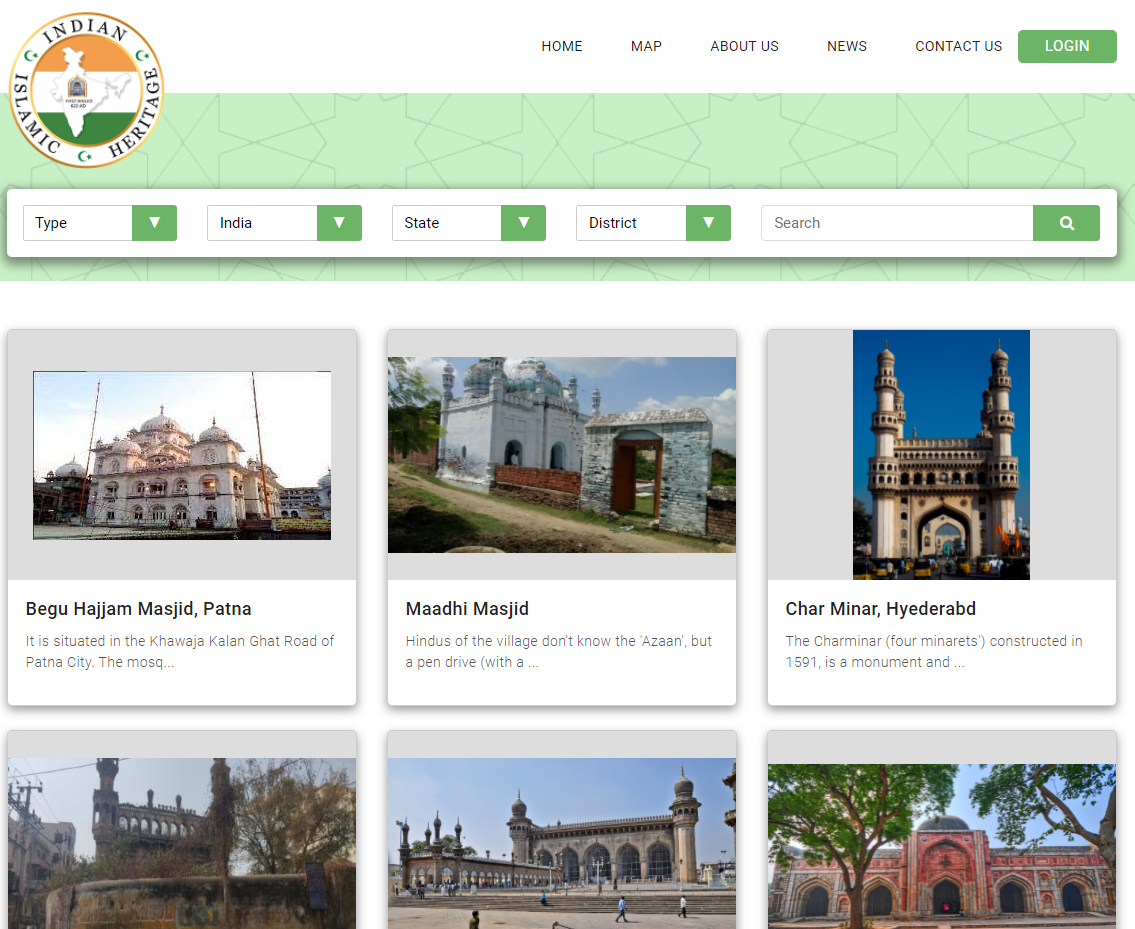
01
July
Indian Islamic Heritage
Indian Islamic Heritage
American Federation of Muslims of Indian Origin works for the Muslim educational development in India through financially supporting institutions, individuals and honoring high achieving students at high school and secondary levels. Its annual conventions held in India and the US offer forums to Muslims of India to interact and participate in its educational movement. Formed in 1989, it has succeeded in creating a network of institutions and experts.
In addition to that, it also promotes awareness and information on the unique Indian Islamic heritage. In 2020, it launched its project to document every Muslim monument, mosque, and shrine digitally. It is an evolving and progressive project as it would keep on adding additional information as and when they are available.
The objective is to preserve the historical contribution of Muslim Indians in an easily retrievable format. The AFMI hopes that the website would become a leading source of Indian Islamic heritage.
The Objectives
This project is a people's project. Everyone can participate in it. In almost every village and town of India, one can identify mosques, monuments, shrines, schools, graveyards, hospitals, ruins associated with Muslims, past or present. The project intends to preserve digitally every such building regardless of the shape and form it is at present.
Basic information about such sites will help us identify them correctly and record their existence before they disappear. The basic information should include the following.
Name
Is it a mosque, shrine, monument, hotel or restaurant or other
Year of its construction
its physical address
A short description of the place, such as the size and the management
Its current stays if it is a ruin or functional and its purpose.
District and state
Current photographs - Max 10
Once you have this information, you can upload it on our Submission page. Our editorial board will process the information and put it on the website.
We believe that through people's participation, we can preserve every institution constructed by Muslims in India. Therefore, we will duly acknowledge the individuals and groups submitting or collecting the information. You can also email us the info if you have difficulty in logging in or uploading.
The website site requires that you create a username and password to use it. For further details, you can email us at the following address.
Our vision
We have a very ambitious vision of collecting, processing, and digitally preserving every institution associated with Muslim Indians in any form or shape, past or present. Of course, it is not easy to collect such information. But it is doable if we follow a road map.
The information is out there in various forms. The Internet has rich material on many of these institutions; the record of the Archaeological Survey of India, the Imperial Gazetteer of India, research done by scholars, and books written on the subject offer essential data. Yet, the fundamental data is out there in India's villages, towns, and cities. The project wants to capture and combine all sources of data to develop a comprehensive study.
The project has identified five main categories.
Masjid. This category includes places of worship of Muslims. It has functional and nonfunctional structures.
Shrine. It contains tombs, graveyards, dargahs, Imambaras, mausoleums, etc.
Monuments. It includes buildings such as forts, parks, gardens, or other monuments.
Eateries: It includes halal and Muslim safe hotels and restaurants in the cities and towns of mosques, shrines, and mausoleums.
Other includes schools, inns, or any different structure not included in the above categories.
The project intends to document essential information such as name, year of construction, short history, current use, management, and address. It also wants to have a photograph and a short video.
Why are we doing it?
To preserve Muslim Indian heritage
To inform Muslims of India of their diverse and rich heritage
To educate the world Muslim community of Muslim heritage in India
To tell Indians of their contribution to the world Muslim community.
To motivate younger generations to research their heritage
To motivate Muslim educational institutions in India to include courses on the legacy of the Muslim community
To promote heritage tourism
To make the data on Muslim contribution in India available to the world
To motivate the community to protect and preserve their heritage
To encourage the community to cherish their legacy

